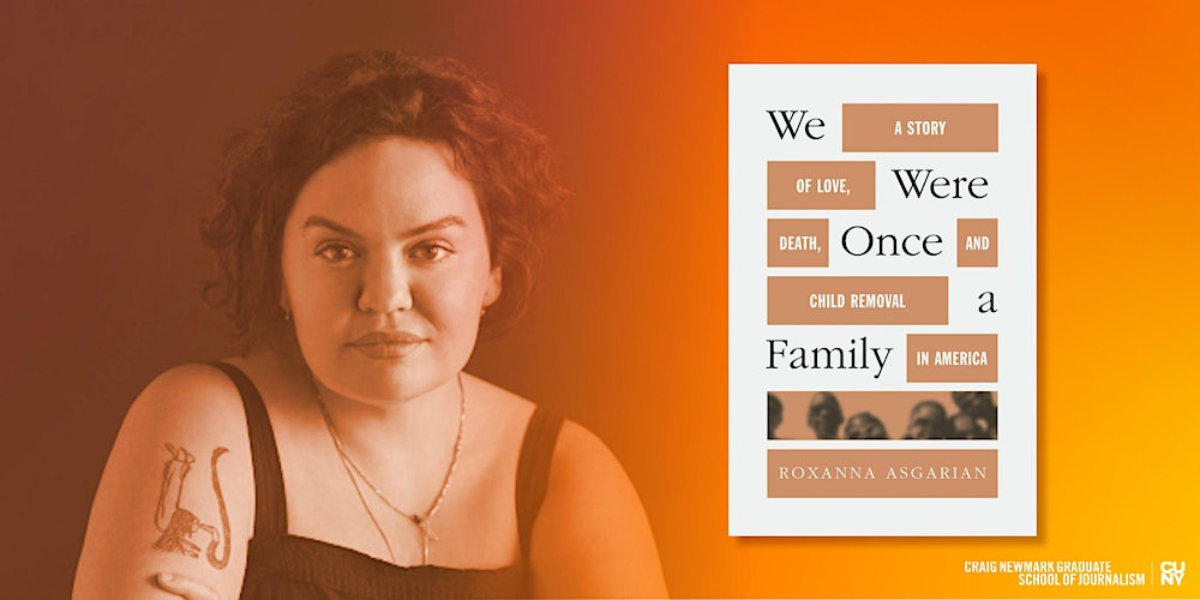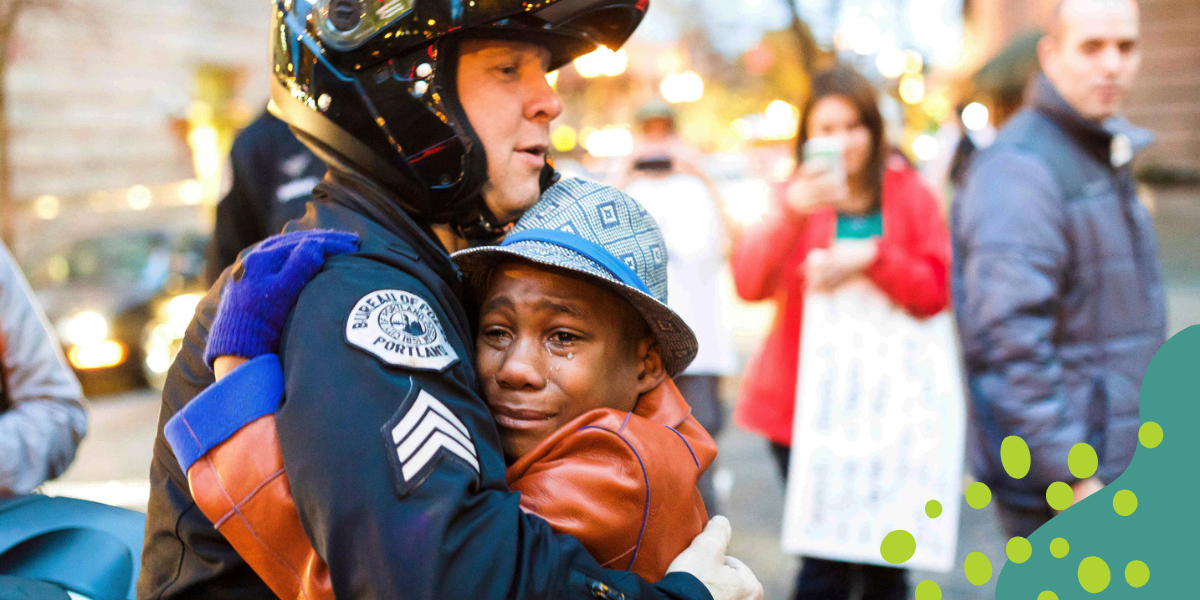
What We're Reading: "We Were Once a Family"
By Jess Nelson, Community Manager, PairTree
May 21, 2023
12m read
Trigger warning - this article references child abuse & neglect, suicide and murder.
April is National Child Abuse Prevention Month and it seems poetic that this eye-opening piece of history was released just days prior.
"Education is the most powerful weapon which you can use to change the world." And what better way to educate ourselves through reading."

Roxanna Asgarian’s debut novel, We Were Once a Family: A Story of Love, Death and Child Removal in America, culminates her years-long investigation into the Hart family and the murder of their six adopted children. This book belongs on every adoption professional, child welfare worker, and adoptive parent’s list of must-read adoption education books.
The Hart Family
Throughout their years with Sarah and Jennifer Hart, their adopted children Devonte, Jeremiah and Ciera, Markis, Hannah and Abigail suffered abuse at the hands of their parents - the women who were entrusted with their care and well-being…and licensed by the State to do so.

From the outside, the Hart family was picture perfect - often attending music festivals, community events, protesting racial injustices - all documented on Jennifer Hart’s social media pages. In reality, the children repeatedly showed up at school with bruises, snuck to their neighbors house asking for food, and 5 of the 6 children were not even measuring on the growth charts for their ages. All signs of child abuse and neglect, yet Jennifer and Sarah Hart were never investigated beyond a business card being left at their house for them to contact a police officer or CPS worker. Instead, they kept moving from state to state when it seemed they had gone too far. All while receiving a stipend from the state of Texas to “care for” their children.
“We remove kids for neglect and place them in strangers’ homes, and give the stranger a monthly stipend to take care of the child,” Dettlaff says. “What if we just gave that one thousand dollars a month to the mother who needed it?” (Asgarian 276)
After years of abuse at the hands of their adoptive mothers, Devonte, Jeremiah, Ciera, Markis, Hannah and Abigail were drugged and driven to their death over a cliff on the California coast.
Initially, the interest was in what motivated Jennifer and Sarah Hart to kill themselves and their children. But Roxanna Asgarian wanted to find out more - she wanted to find these children’s birth families and tell their story. And she does. After five years of investigation and building relationships with Sherry, Tammy, Dontay and Clarence, Roxanna shares these families' heart-breaking journey and sheds light on the system that failed them.
In an interview with The Cut, Roxanna is asked, “What do news stories continue to get wrong about adoption and foster-care narratives?”
Three Key Areas in Need of Change
While the Hart children were adopted from foster care, the flaws in the system span both private and state adoption, and the points Roxanna makes ring true for both as well.
1. There is a crippling lack of oversight.
As we see in the Hart family, the evidence of child abuse was there for years - but because the children were in the Texas foster care system and the Hart family lived in Minnesota (then Oregon, then Washington) there was no communication between the state’s regarding the wellbeing of these kids.
In private adoption, we see the same lack of oversight in the unethical practices and coercion - flying expectant moms to a more “adoption friendly” state, incentives for returning expectant moms, and a blatant disregard for the laws regarding expenses.
2. Birth parents (and families) are erased.
Especially in child welfare cases, once parental rights are terminated, birth parents cease to exist…gone are the visits and updates - even the right to know your children were brutally murdered. After adoption through foster care - no matter how old the children are - the adoptive parents have the opportunity to change their names, give the children their last name, and issue a new birth certificate. Sealing the child’s original birth certificate until they are 18 years old, sometimes sealing it forever in some states.
The same is true in private adoption. While open adoption is the norm now, meaning there is at least some level of contact between the birth and adoptive parents, original birth certificates are still amended and sealed…allowing adoptive parents to erase all existence of birth parents on their child’s birth certificate.
3. Adopting families are often ill-equipped & uneducated.
In the case of Jennifer & Sarah Hart, they should have never been approved to adopt two sibling groups of three kids each. 6 children with their own individual needs and trauma can be too much for a trauma informed parent, let alone ill-informed adoptive parents who view adoption as “saving a child” and “giving them a better life.” Too many adoptive families view adoption through the lens of a savior, when time and time again we have shown that adoption doesn’t necessarily mean a better life - just a different one. Lacking in education and reasonable expectations about the adoption process, waiting adoptive parents constantly ask “how long is this going to take?” instead of “how can I be better prepared?”
In the heart-breaking case of the Hart family, the children’s birth families weren’t notified of their death’s until a reporter was given the assignment to track them down, notify and interview them. Because they were adopted out of state, no one from Texas ever checked up on them again.
A Flawed System
The goal of the foster care system is supposed to be reunification, but it seems that some states - Texas included, rush to terminate parental rights instead of reuniting families. Asgarian writes, “When the children were adopted by Jennifer and Sarah Hart in Minnesota, they were 3 of the 11,792 adoptions that went through Texas in 2008. The state earned nearly $8.5 million in adoption incentives that year, an increase of $3.5 million over the year before.” (Asgarian 59)
According to Dorothy Robert’s book Torn Apart: How the Child Welfare System Destroys Black Families - and how Abolition Can Build a Safer World, it’s due to the systemic racism in the child welfare system.
Roberts writes, “Family destruction has historically functioned as a chief instrument of group oppression in the United States.”
This is evident in the practice of Native American boarding schools and the removal of Native children from their families to the practices of a corrupt Texas Judge - who often brought an atlas to court and would ask Hispanic mothers to show him where they came from…and tell them they should just go back there.
We also saw this in the case of the Hart children; Priscilla, one of the biological grandparents petitioned the court to get custody of her three grandchildren prior to their adoption. Instead of halting the adoption process to explore the opportunity of keeping a biological family together, their case moved forward towards adoption. Priscilla took her case to the First Circuit Court of Appeals where she ultimately lost…after the children’s adoption was already finalized.
Adoption Needs Change
It has been said for years - the system is broken. Families are unnecessarily separated. Birth families aren’t even notified when their children die. But how many more families have to be harmed by the very system put in place to protect them?
- Case workers are overworked and underpaid.
- Adoption through the state is incentivized (when there is an overwhelming amount of families who want to adopt)
- Adoption through private channels has become an option that is only available to those with wealth or willing to go into extreme debt (not to mention it can be predatory and coercive for expectant mothers.)
- Post-adoption support is practically non-existent (despite an overwhelming amount of research pointing to its necessity for healthy development)
Organizations Driving Change
Thank goodness for the hard work of a number of individual organizations that are working to create positive and lasting change in adoption.
In Foster Care
- Binti is creating software that promotes partnership, drives better outcomes and creates time savings for overworked social workers.
- upEND is fighting to end systemic racism in the foster care system, recreating the ways our society supports children and families.
In Private Adoption
- Our PairTree team is fighting to increase access and equity in adoption (while exposing the unethical practices, processes and providers)
- Lifetime Healing Foundation and Family 2 Family Support Network are providing free post-placement support and fighting to educate healthcare providers on neutral, compassionate care.
While it’s a step in the right direction, there is so much more needed and "We Were Once a Family" sheds a much needed light on the shortcomings in the foster care system and the necessity of maintaining relationships with birth families.
Roxanna Asgarian is a Texas-based journalist, primarily serving as the Texas Tribune's law and court reporter. We Were Once a Family: A Story of Love, Death and Child Removal in America is her debut novel. You can get your copy of We Were Once a Family here.
 Jess Nelson Jess Nelson is the Community Manager at PairTree, focused on growing the resources, programs and education offered for both expectant and birth families, and adoptive families. Jess has spent the last 5 years working in the field of private adoption, first as a paralegal for an Adoption Attorney in Louisiana and most recently with PairTree. As a birth mom of two through private adoption, her firsthand experience of both agency and attorney adoption led her to becoming an adoption professional and join the fight for reform and post placement care for birth moms.
Jess Nelson Jess Nelson is the Community Manager at PairTree, focused on growing the resources, programs and education offered for both expectant and birth families, and adoptive families. Jess has spent the last 5 years working in the field of private adoption, first as a paralegal for an Adoption Attorney in Louisiana and most recently with PairTree. As a birth mom of two through private adoption, her firsthand experience of both agency and attorney adoption led her to becoming an adoption professional and join the fight for reform and post placement care for birth moms.


